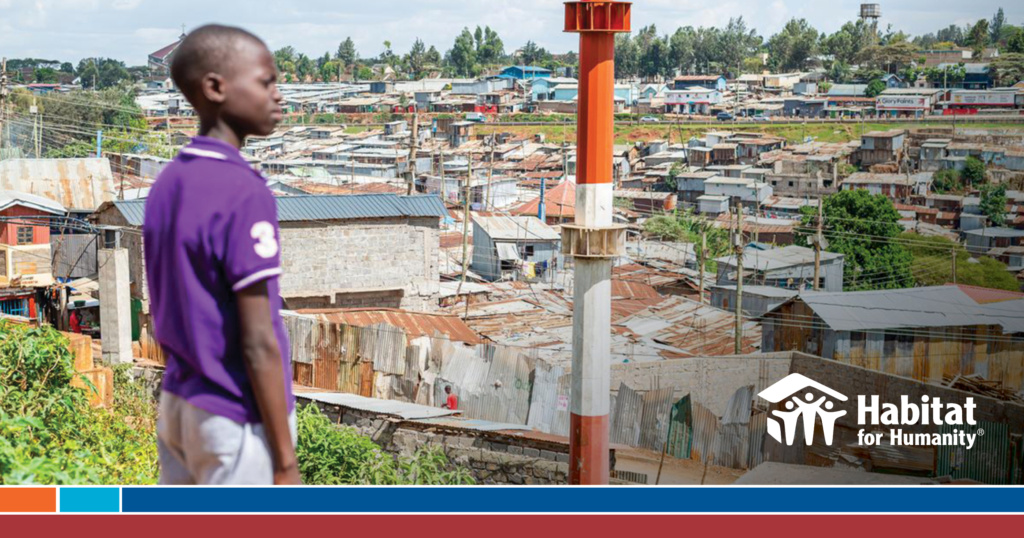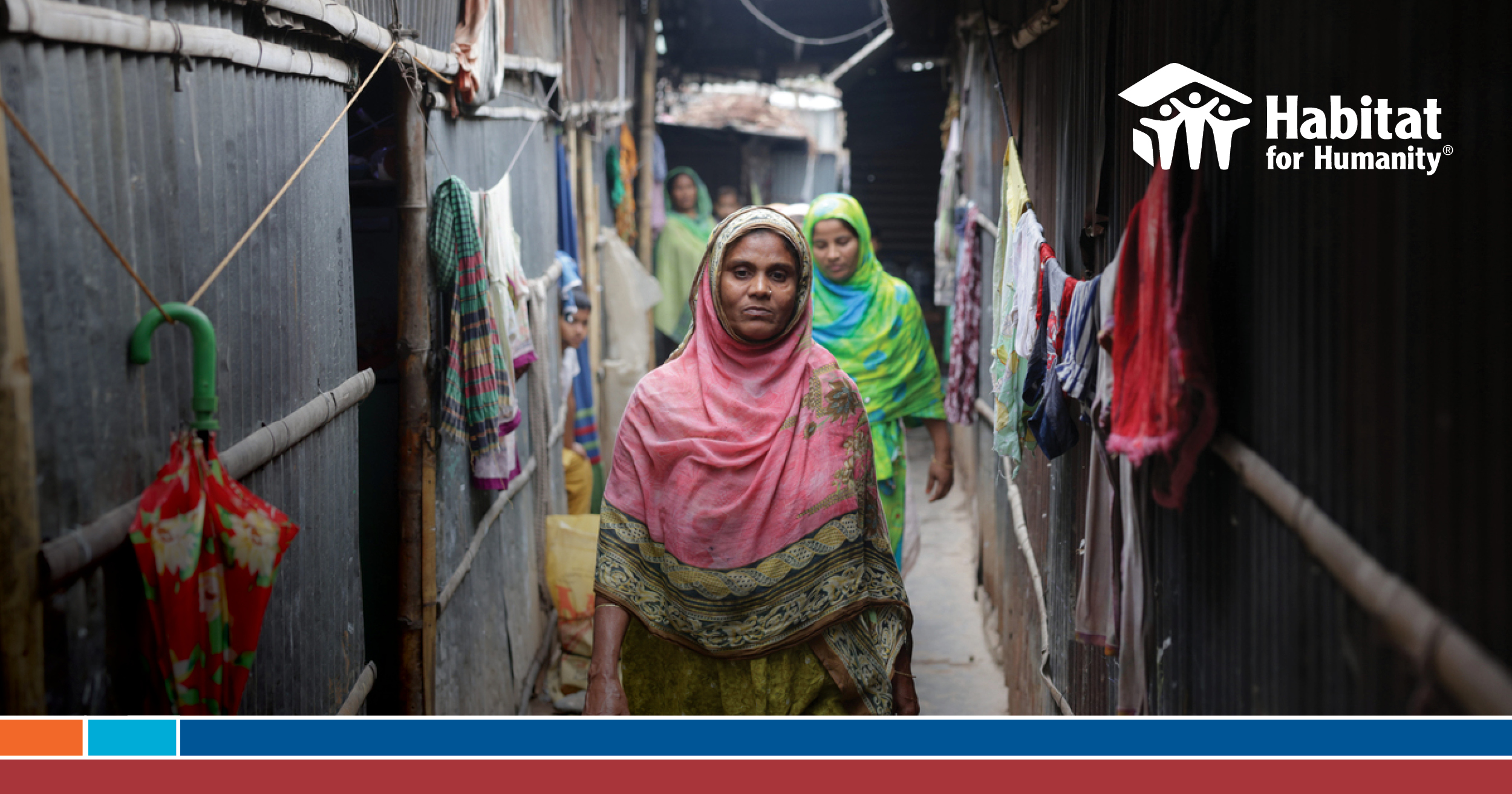There are more than 1 billion people living in slums and other informal settlements worldwide, sadly they are not treated as equals. Their homes often don’t have basic services such as clean water. They lack land rights and are the most vulnerable to climate change.
Last year, Habitat for Humanity launched Home Equals, a five-year global advocacy campaign to increase equitable access to adequate housing, particularly in informal settlements. The Home Equals campaign seeks to improve the lives of 15 million people living in informal settlements through policy change at the municipal, national and regional levels.
Through secure tenure, empowered participation, improved climate resilience and access to basic services, we can tackle poverty, improve health and education, promote gender and racial justice, and support economic growth for everyone.
We must act now because the challenge is growing worse. Some projections indicate that one out of every seven people in the world, or more than 1.2 billion people total, will live in informal settlements by 2030. The UN estimates that 3 billion people will be in need of adequate and affordable housing by 2030 if current trends don’t change, with many of them living in informal settlements.

A home without access to clean water and adequate sanitation means that people – especially children – are at serious risk of contracting diseases. In 2020, around one in four people globally lacked access to safely managed drinking water, and nearly half the world’s population lacked access to safely managed sanitation services. Some 829,000 people die each year from diarrhea as a result of unsafe drinking water, sanitation and hand-washing practices.
A home in an area with few avenues for active civic participation means it is hard for residents to have their voices heard about these issues. Lack of empowered participation in the decisions that affect them also puts people in informal settlements at greater risk of eviction or resettlement. When a community is empowered to prioritize their own needs, you are much more likely to see improved tenure security and effective delivery of basic services.
We invite you to join us to support these people, because of how important housing is to so many aspects of people’s lives.
Home equals education.
Home equals health.
Home equals safety and security for families and the larger community.
With your help, we can ensure that everyone — particularly people living in informal settlements — has equitable access to adequate housing.



